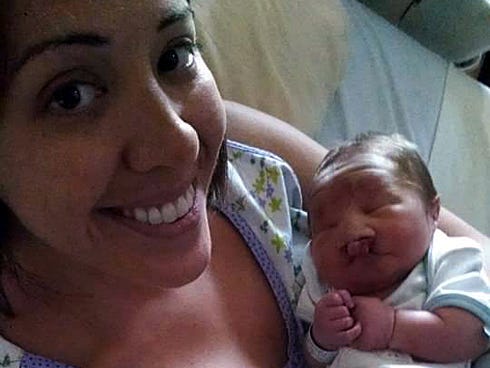
Recently, I have been reading up on the policy of doctors using the term “incompatible with life” while explaining trisomy to parents expecting children with this diagnosis, specifically trisomy 13 and trisomy 18.
Trisomy occurs “with the presence of an extra third chromosome” which is placed among two strands of DNA, according to Chad Haldeman-Englert, MD, of the Wake Forest School of Medicine. An infant may be born with multiple defects and/or intellectual disabilities. (These could include cleft lip or palate, seizures and extra fingers or toes, according to the U.S. National Library of Medicine National Institutes of Health.
After giving birth to a child with trisomy 13 in June 2014, this topic is very emotional for me.
My unborn son was diagnosed with trisomy 13 when I was 21 weeks pregnant. My husband and I were heartbroken, and we decided to pray as hard as we could and hope for the best.
I delivered our beautiful baby at 36 weeks, and despite low expectations, he lived, and we were able to take him home and give him our love for 23 days.
When we went home, we had hospice care, and the nurses were very caring and had so much hope for our son. It was even suggested for us to take measures to increase his likelihood of survival rather than wait for the inevitable.
However, on the 22nd day, our beautiful baby boy began to struggle with breathing. We took him to the emergency room and were transferred to the regional pediatric hospital. When we got there, we were told that our son was dying. Rather than suggesting we do something to increase his chances of survival, the doctors acted hopeless and suggested that we let him go.
Just like that, because our child had trisomy 13, doctors viewed the situation as “impossible.”
Hours before our son passed, we held him and kissed him and told him we loved him; we watched him become more and more exhausted as he struggled to oxygenate his body until his life left him.
I’ve done a lot of research and have joined social groups where other parents have faced the same issue and have suffered, and it seems we all feel the same.
A trisomy diagnosis should not mean “incompatible with life.”
These children should be allowed to receive the same medical treatments and be viewed with the same opportunities as others who face severe illnesses.
Ashley Seder is a past Crestview resident and a student at the University of West Florida for social work.
This article originally appeared on Crestview News Bulletin: Commentary: Trisomy does not mean 'incompatible with life'
